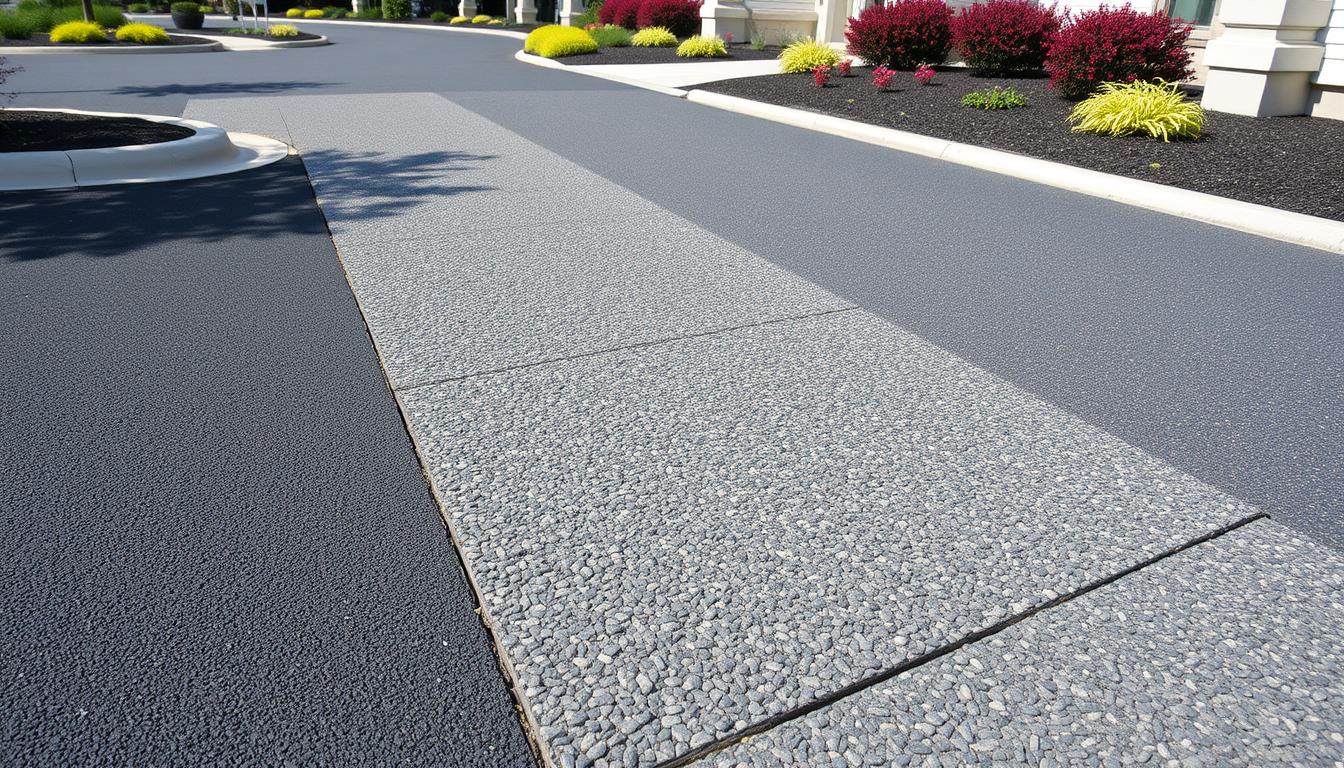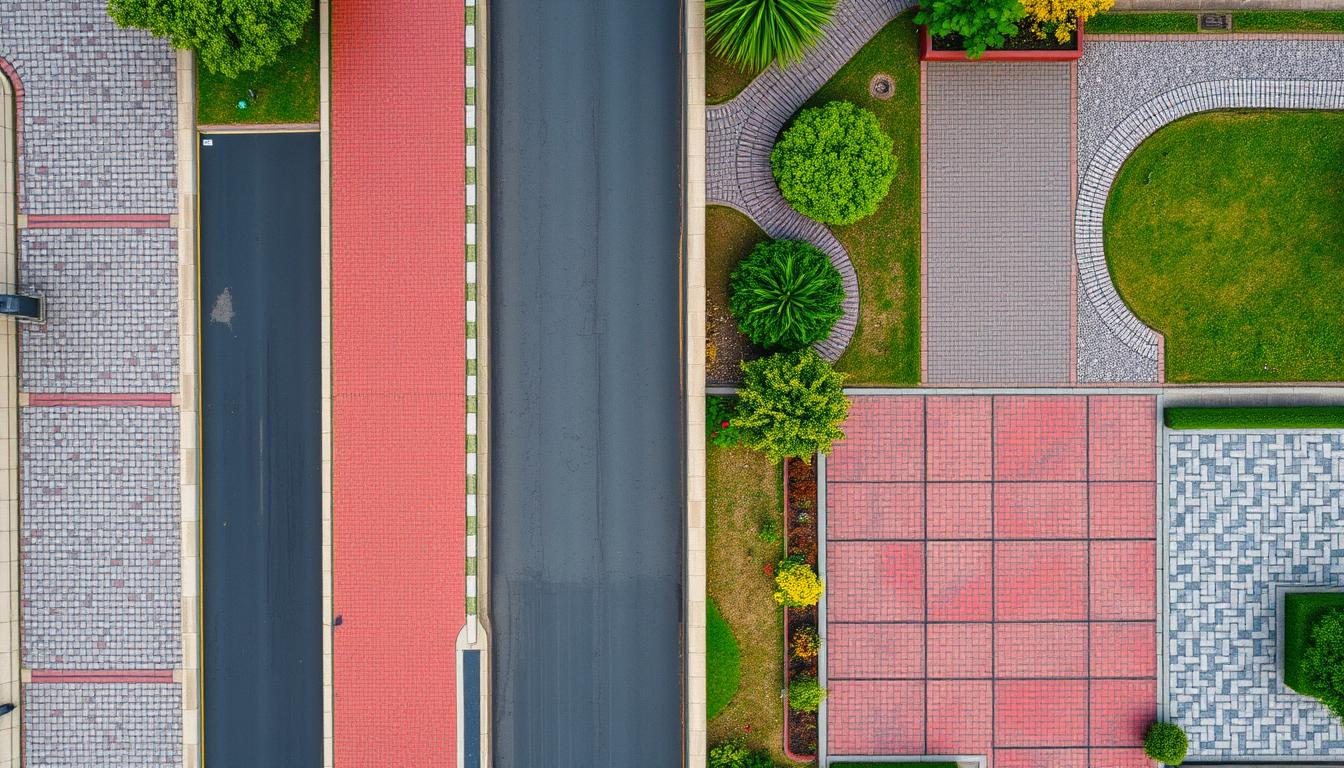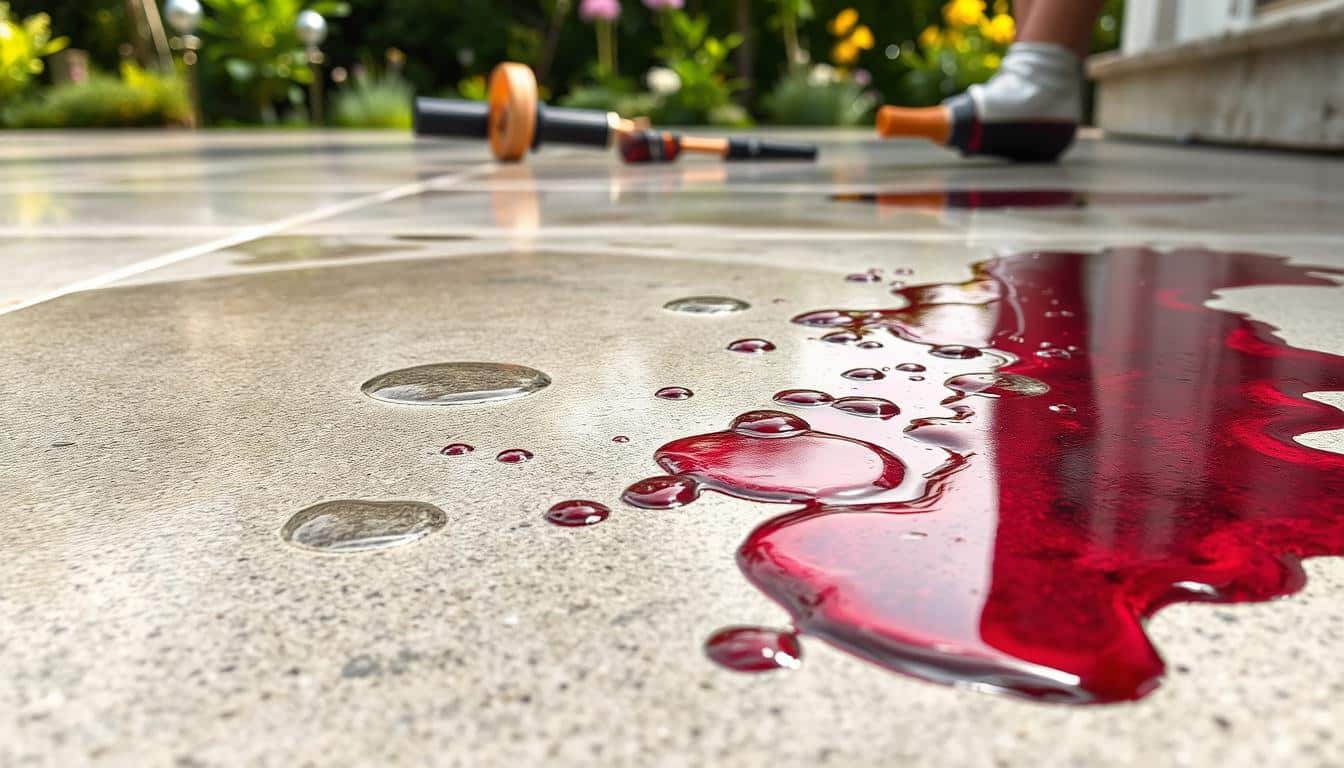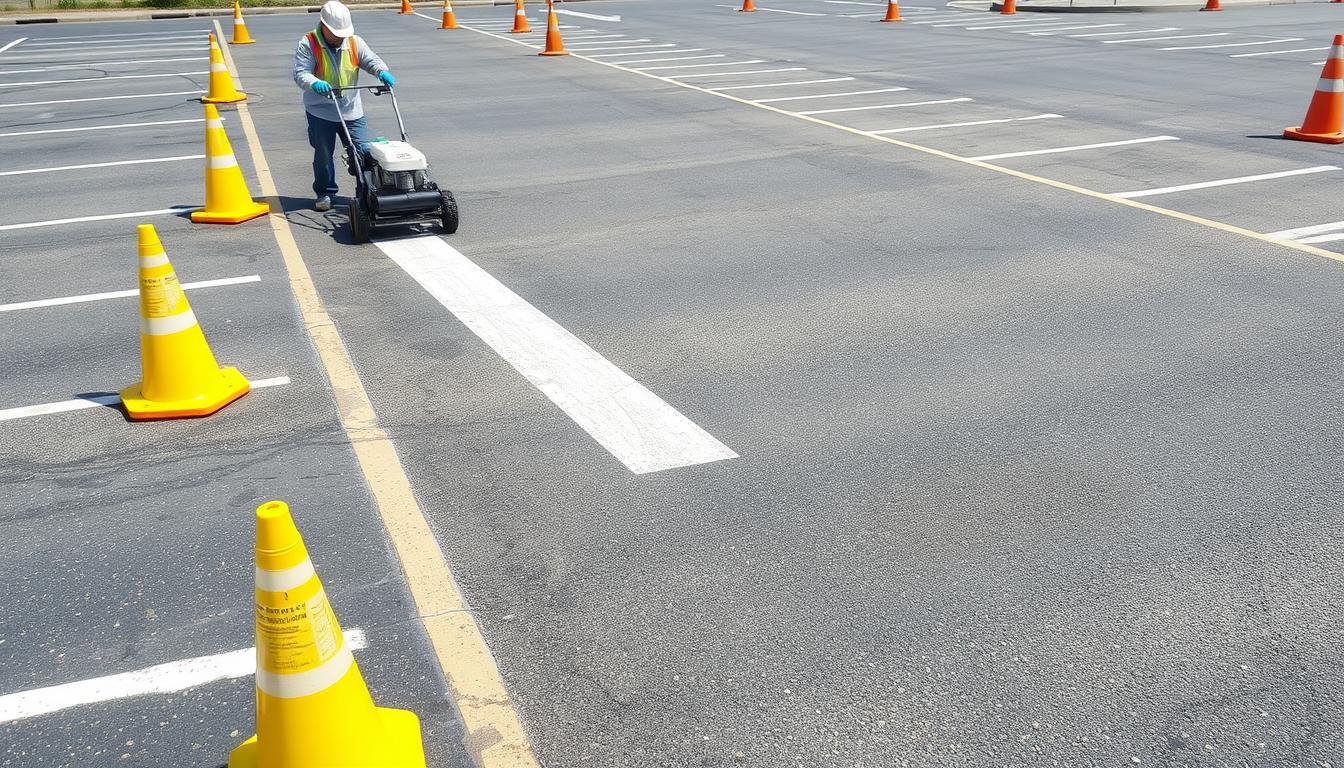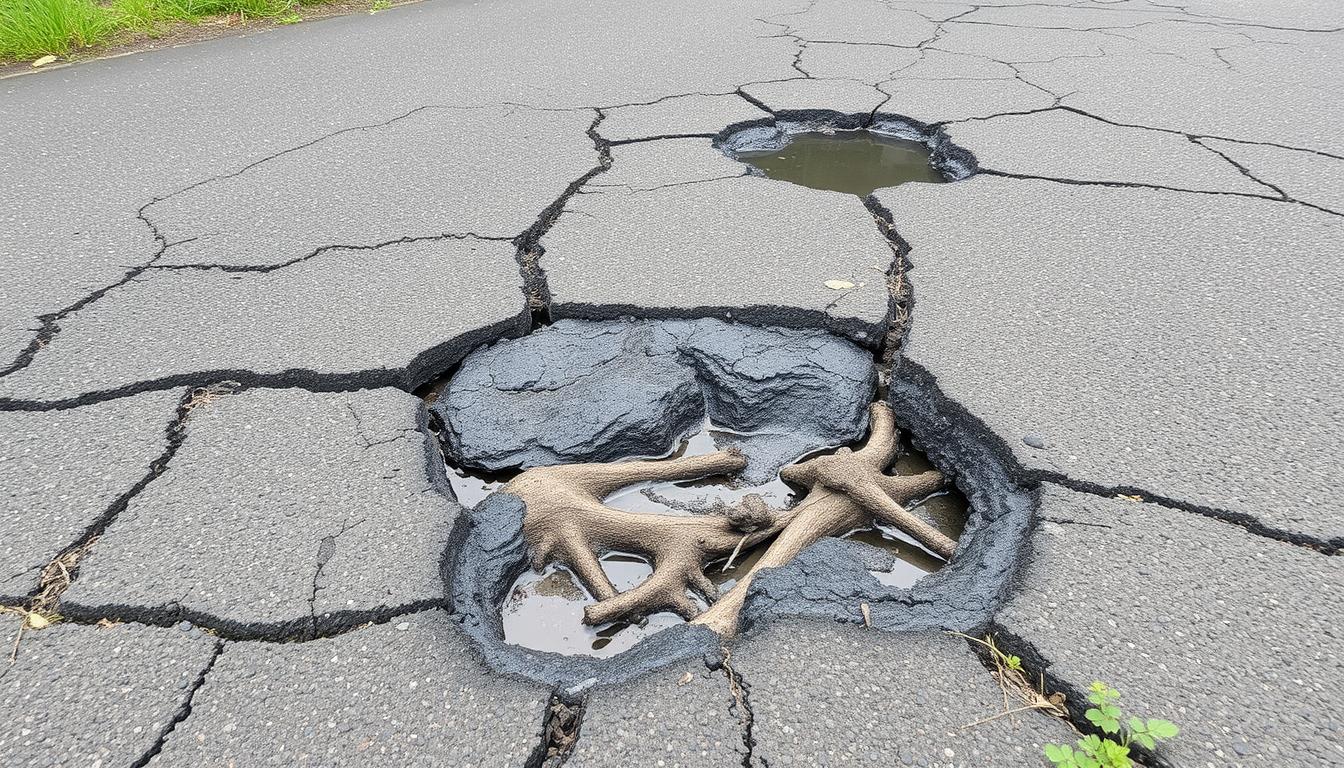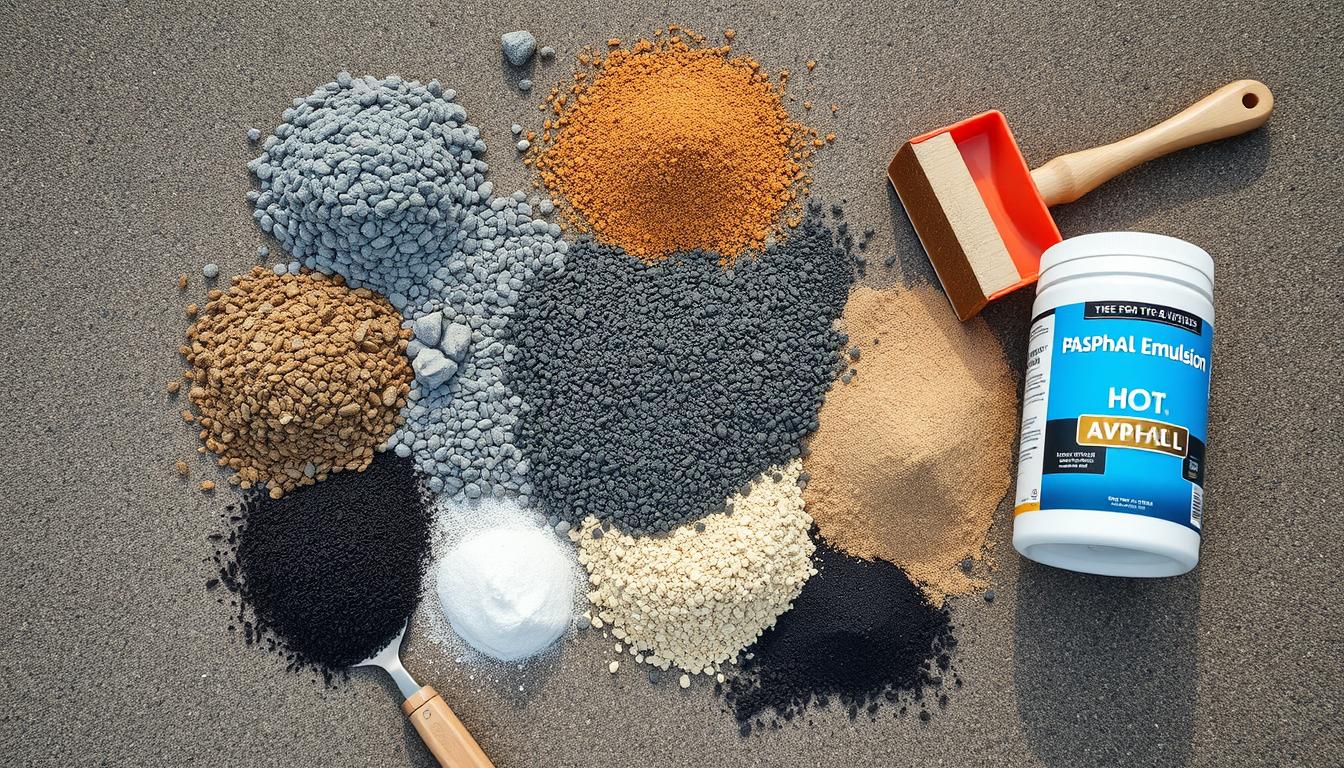Ever wondered why some paved surfaces last long while others don’t? Knowing what types of surfaces can be paved is key for looks and durability. The right choice depends on traffic, weather, and upkeep needs. With many options like asphalt and permeable paving, picking the right one is vital for lasting results.
Key Takeaways
- There are various types of paved surfaces, each with unique benefits.
- Asphalt is economical and popular for its quick installation.
- Concrete offers durability, lasting up to 50 years with proper maintenance.
- Brick and stone provide aesthetic charm but can be more costly than asphalt and concrete.
- Permeable options aid in stormwater management and sustainability.
- Gravel is a low-cost option but requires regular maintenance.
- Consider traffic types and usage frequency when choosing a paving surface.
Introduction to Paving Surfaces
In construction and landscaping, many paving surface options are available. Each has its own look, durability, and upkeep needs. Asphalt and concrete are tough, while brick and stone add charm. Permeable paving systems are great for the environment, managing stormwater and looking good.
Overview of Paving Options
Choosing the best surfaces for paving depends on several factors. Asphalt is used on most U.S. roads for its strength. Cool pavements can also help reduce heat in cities. Permeable systems cut down on stormwater runoff, fitting well in different weather.
Importance of Choosing the Right Surface
Picking the right paving surface is key. Consider the load, weather, and use of the area. This ensures the surface works well and lasts long. For help, look at professional paving services that offer advice for your project.
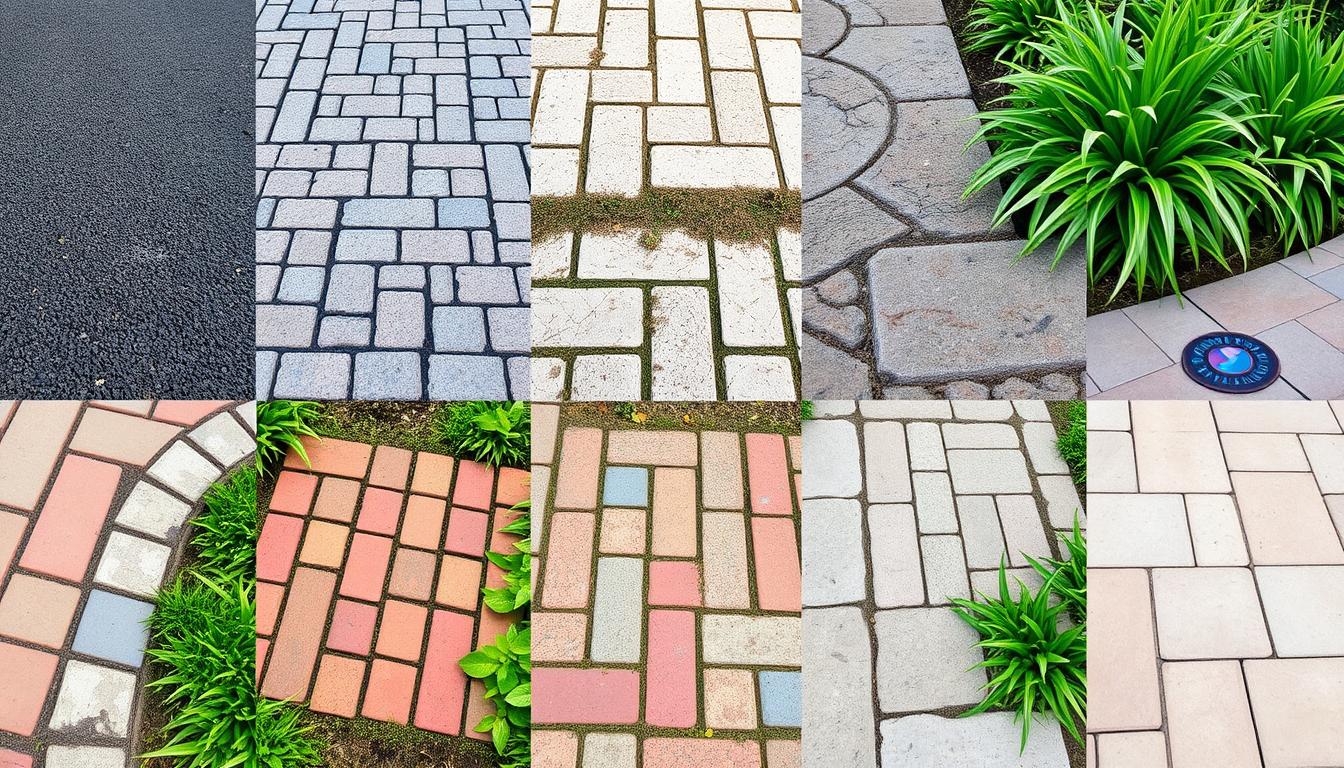
Asphalt Paving
Asphalt paving is popular because it’s strong and affordable. It’s made from aggregate materials mixed with bitumen, a petroleum product. Asphalt is flexible, easy to apply, and smooth.
It handles temperature changes and heavy weights well. This makes it a great choice for many surfaces.
Characteristics of Asphalt
Asphalt pavement is mostly made of aggregate and sand, with a bit of asphalt or bitumen. It can be as thin as 1/2″ or as thick as 12″, depending on the use. Modern tools like automatic grade control systems make paving better.
Hot mix asphalt is heated to 300 to 350 degrees Fahrenheit for application. Warm mix asphalt uses less fuel and is made at lower temperatures.
Benefits of Asphalt Paving
Asphalt paving has many advantages. It’s quieter than other surfaces and easier to fix when needed. An asphalt driveway can last 20 to 25 years with proper care.
It’s also eco-friendly, with about 80% of it being recycled in the U.S. Using recycled asphalt makes it stronger and more durable.
Common Applications
Asphalt is used a lot in cities and suburbs for roads, parking lots, and driveways. It’s reliable and lasts long. This makes it a top choice for many paving needs.
Concrete Paving
Concrete paving is known for its strength and durability. It’s great for roads, driveways, and commercial areas. There are many types of concrete to fit different needs.
Types of Concrete Surfaces
Concrete paving comes in many forms, like plain, stamped, pigmented, and exposed aggregate. Stamped concrete looks like stone or brick, but costs less. Pigmented concrete adds color to your paths or driveways.
Each type meets different needs and tastes. It’s important to choose the right one for your project.
Advantages of Concrete Paving
Concrete paving is very durable against wear, spills, and extreme temperatures. It may cost more upfront than asphalt, but lasts longer. This means you save money in the long run.
Concrete needs less upkeep than asphalt, saving you money over time. It’s also great for heavy loads, making it perfect for commercial use.
Maintenance Tips for Concrete
Keeping concrete in good shape is key. Seal it every 2 to 5 years to prevent stains and wear. Cleaning it with water is usually enough.
Fixing small cracks early can stop bigger problems. Knowing how to care for concrete makes it a smart choice for your projects.
Brick and Stone Paving
Brick and stone paving are known for their beauty and flexibility. They let homeowners create unique patterns and choose colors that match their outdoor spaces. You can pick from natural stone, clay brick, and concrete, each with its own benefits.
Aesthetic Appeal of Brick and Stone
Brick and stone add timeless elegance to patios and walkways. They come in many colors and shapes, fitting both modern and classic styles. Natural stones like limestone and travertine are not only beautiful but also durable, boosting your property’s value.
Durability and Longevity
These materials are very durable. With proper care, they can last 25 to 30 years, outlasting many other surfaces. While they might cost more than concrete, their strength and long life make them worth it. They handle heavy use and bad weather well.
Installation Considerations
How well a brick or stone surface is installed affects its life. A solid base is key to avoid problems. Natural stone pavers need careful handling because of their unique shapes. Some pavers fit together, making them more stable and easier to maintain. Though you’ll need to keep weeds out, the end result is a beautiful and useful outdoor area.
Permeable Paving
Permeable paving is a green way to cover surfaces. It lets water soak through, reducing stormwater runoff. This helps recharge groundwater, which is great for cities that flood often.
It’s a key part of managing stormwater in urban areas. This makes it important for homes and businesses.
Definition and Benefits
Permeable paving lets rainwater soak into the ground. This solves drainage issues that regular surfaces have. It’s also good for the environment and improves water quality by filtering out pollutants.
It also cuts down on flooding. This makes permeable paving vital for green cities.
Environmental Impact
Permeable paving does more than just manage stormwater. It reduces erosion and helps refill local water sources. Using it in cities makes construction more eco-friendly.
This benefits the urban environment a lot.

Ideal Situations for Use
Permeable paving is great for parking lots, driveways, and city streets. It helps with drainage and reduces the need for old stormwater systems. It’s a top pick for sustainable projects.
Gravel and Crushed Stone Surfaces
Gravel and crushed stone surfaces are very affordable. They are flexible and have a rustic look, perfect for many uses. Gravel is a cost-effective choice compared to other paved surfaces. It has a lower initial cost and keeps expenses down over time.
Cost-Effectiveness of Gravel
Gravel paving is very affordable, making it popular for homes and businesses. Prices range from $1 to $3 per square foot, depending on the stone type. This makes it easy to create driveways, paths, and rural roads without spending a lot.
Maintenance Requirements
Gravel surfaces are cheap but need regular care. You must add more gravel to keep the surface smooth and prevent erosion. If you ignore this, you might face problems like potholes and stones getting dislodged. Knowing how to maintain gravel is key to keeping it a good choice.
Best Uses for Gravel Paving
Gravel paving works best in areas with little traffic, like driveways, garden paths, and rural roads. It blends well with nature, making it a favorite for those who want a natural look. Even with challenges like dust and drainage, gravel offers unique benefits for different needs.
Commercial Paving Solutions
Commercial paving solutions focus on durability and function in busy areas. They are designed to meet specific needs and looks for business spaces. Asphalt and concrete are top picks for their lasting quality, often used in parking lots and driveways.
Parking Lots and Driveways
Asphalt is a top choice for parking lots and driveways because of its strength. It’s made of 95% aggregates and 5% bitumen, making it very durable. Asphalt is heated to 300°F to 350°F to work best.
It can last up to 20 years, making it a cost-effective option for businesses.
Sidewalks and Pathways
Sidewalks and pathways need to look good and work well. Brick and permeable paving are favorites for their looks and ability to drain water. They make walking safer and help manage stormwater, fitting well with green goals.
Specialized Commercial Applications
Special areas like loading docks and airport runways need strong materials. Stone Mastic Asphalt is used here for its toughness, though it costs more to start. The right paving ensures safety and meets standards.
Residential Paving Solutions
Today, homeowners want paving solutions that look good and work well. The best surfaces for paving make homes look better and are easy to care for. There are many options, so you can pick what fits your style and needs.
Different paving surfaces like asphalt, concrete, bricks, and stones make homes look lively. They’re great for both relaxing and parking.
Driveway Options
Asphalt and concrete are top choices for driveways because they’re affordable and last long. Asphalt costs $5 to $12 per square foot and lasts 20 to 25 years. Concrete costs $5 to $8 per square foot and can last 40 years.
If you want something special, paver driveways cost $8 to $30 per square foot. Stamped concrete, costing $10 to $12 per square foot, offers unique designs that boost your home’s look.
Pathway and Patio Paving
Pathways and patios are great for adding your personal touch to your home. You can pick from many paving options to make your outdoor spaces beautiful. Gravel is the cheapest, costing $1 to $3 per square foot, and adds a rustic feel.
Permeable pavers are also a good choice. They’re not only pretty but also help with stormwater runoff. They let up to 80% of rainwater drain naturally.
Customization for Homeowners
Homeowners want their outdoor spaces to show their style. You can pick from many colors, materials, and eco-friendly choices. Using recycled asphalt can boost your property’s value by 10-15%.
Looking at all paving options helps you pick the best for your home. It makes sure your space is not only beautiful but also durable and eco-friendly. For more on our services, visit our seal coating services.
Why Choose HT Paving and Seal Coating Services?
HT Paving and Seal Coating Services is a top choice in the Bay Area and California. Our family-owned business focuses on quality and safety. We ensure every project meets high standards and follows the rules.
Our team is dedicated to being efficient and finishing projects on time. This makes us a reliable name in the paving industry.
Our Commitment to Quality and Safety
HT Paving knows how important regular maintenance is for paved surfaces. Studies show that filling asphalt cracks can make it last up to 50% longer. This can save a lot of money on repairs.
We use sealcoating to protect surfaces from the environment. This helps keep your investment safe and lowers long-term costs. Well-maintained asphalt can also make your property look better and increase its value by 5-10%.
Client-Centric Approach and Reviews
Our excellent service has earned us great reviews from happy clients. We offer custom solutions to meet your needs, making sure you feel important. Choosing HT Paving means you’re getting quality service and a proven track record.
Contact Us for Your Paving Needs
Ready to see the benefits of professional paving? Call us at (415) 774-6424. Our team is ready to talk about your paving needs and help you choose the best options. Trust HT Paving and Seal Coating Services for your project’s success!
